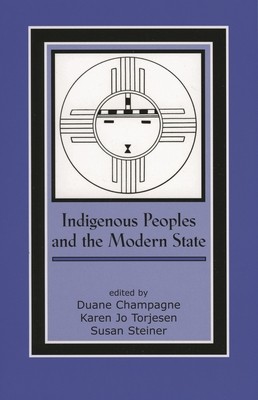
- We will send in 10–14 business days.
- Publisher: Altamira Press
- ISBN-10: 0759107998
- ISBN-13: 9780759107991
- Format: 15.3 x 22.8 x 1.2 cm, minkšti viršeliai
- Language: English
- SAVE -10% with code: EXTRA
Indigenous Peoples and the Modern State (e-book) (used book) | bookbook.eu
Reviews
Description
Champagne and his distinguished coauthors reveal how the structure of a multinational state has the potential to create more equal and just national communities for Native peoples around the globe. Many countries still face extreme differences among ethnic groups and submerged nations, leading to marginalization and violence. Examining these inherent instabilities in multicultural nations such as the U.S., Canada, Mexico, and Guatemala, the authors confront problems of coerced assimilation for indigenous communities whose identities predate the formation of the nation states, often by thousands of years. The contributors show how indigenous people seek to preserve their territory, their rights to self-government, and their culture. This book is a valuable resource for Native American, Canadian and Latin American studies; comparative indigenous governments; constitutional law; and international relations.
EXTRA 10 % discount with code: EXTRA
The promotion ends in 21d.14:03:28
The discount code is valid when purchasing from 10 €. Discounts do not stack.
- Publisher: Altamira Press
- ISBN-10: 0759107998
- ISBN-13: 9780759107991
- Format: 15.3 x 22.8 x 1.2 cm, minkšti viršeliai
- Language: English English
Champagne and his distinguished coauthors reveal how the structure of a multinational state has the potential to create more equal and just national communities for Native peoples around the globe. Many countries still face extreme differences among ethnic groups and submerged nations, leading to marginalization and violence. Examining these inherent instabilities in multicultural nations such as the U.S., Canada, Mexico, and Guatemala, the authors confront problems of coerced assimilation for indigenous communities whose identities predate the formation of the nation states, often by thousands of years. The contributors show how indigenous people seek to preserve their territory, their rights to self-government, and their culture. This book is a valuable resource for Native American, Canadian and Latin American studies; comparative indigenous governments; constitutional law; and international relations.


Reviews